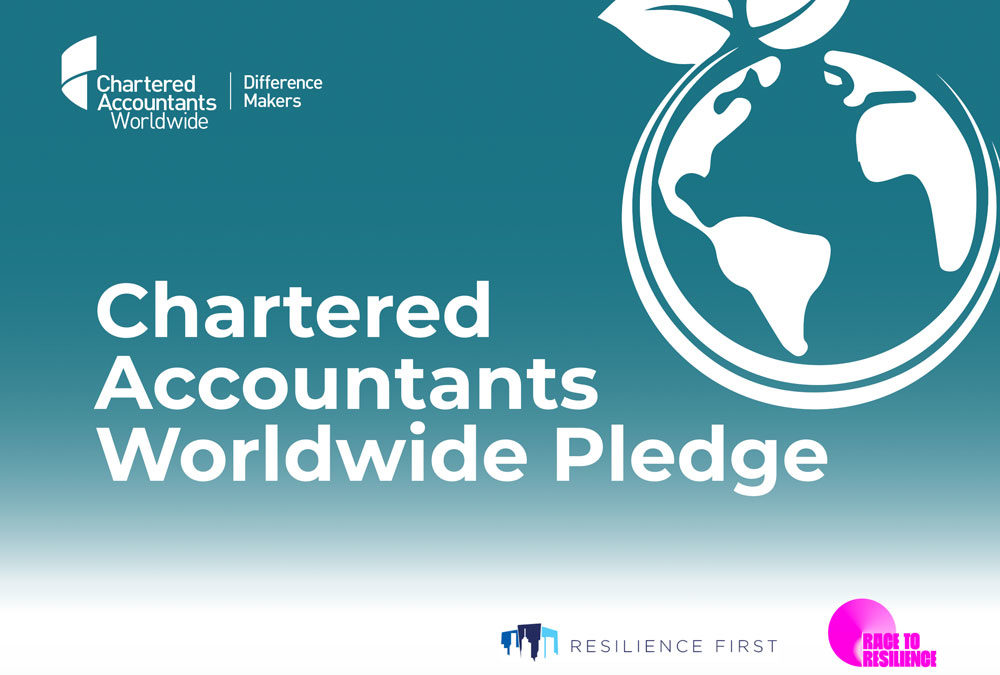Strategies For Rapid LDC Graduation: A Guide For Chartered Accountants

Table of Contents
Chartered accountants (CAs) play a pivotal role in the economic advancement of Least Developed Countries (LDCs). Their expertise in financial management, investment analysis, and strategic planning is paramount for achieving sustainable development goals and, ultimately, graduating from LDC status. This guide outlines key strategies for CAs to contribute to rapid LDC graduation, providing a roadmap for impactful engagement.
Understanding the LDC Graduation Criteria and Challenges
The Criteria for Graduation
The United Nations establishes specific criteria for LDC graduation, encompassing economic, human capital, and structural indicators. Meeting these thresholds signifies a nation's progress toward sustainable development. These key metrics include:
-
GDP per capita: This measures the average income per person in a country. A higher GDP per capita indicates a greater level of economic prosperity and resilience. Meeting the GDP per capita threshold is crucial for LDC graduation.
-
Human Assets Index (HAI): This composite index reflects the quality of life, encompassing factors such as nutrition, health, education, and literacy. A higher HAI signifies improved human development, a key pillar for sustainable progress and graduation.
-
Economic Vulnerability Index (EVI): This index assesses a country's susceptibility to external shocks, such as climate change, commodity price volatility, and natural disasters. A lower EVI indicates greater resilience and stability, essential for long-term economic growth and LDC graduation.
Common Challenges Facing LDCs
LDCs face numerous hurdles hindering their progress toward graduation. These challenges represent opportunities for CAs to provide impactful solutions:
-
Lack of infrastructure: Inadequate infrastructure (transport, energy, communication) stifles economic activity and investment. CAs can contribute by evaluating infrastructure projects’ financial viability and attracting investment.
-
Limited access to finance: Restricted access to credit and financial services limits business growth and investment opportunities. CAs can design financial inclusion strategies, attracting microfinance and supporting SMEs.
-
Weak institutional capacity: Weak governance structures and limited capacity hinder effective policy implementation. CAs can support capacity building efforts by developing transparent financial management systems and training local professionals.
-
Governance challenges: Corruption and lack of transparency undermine economic progress and investor confidence. CAs, through promoting ethical practices and robust accounting standards, are crucial in fostering good governance.
-
Vulnerability to climate change and external shocks: LDCs are disproportionately affected by climate change and external economic shocks. CAs can help develop climate-resilient investment strategies and risk mitigation plans.
Leveraging Financial Expertise for Accelerated Growth
Strategic Financial Planning for LDC Development
CAs play a crucial role in shaping sound macroeconomic policies and budget processes for LDCs:
-
Developing robust national budgets: CAs can design efficient and transparent national budgets, allocating resources effectively to achieve development goals.
-
Fiscal sustainability: CAs can assist in designing fiscal policies promoting long-term stability and avoiding unsustainable debt levels.
-
Efficient public expenditure management: CAs can develop systems for monitoring and evaluating government spending, ensuring transparency and effectiveness.
-
Attracting foreign direct investment (FDI): CAs can analyze investment opportunities, prepare compelling investment proposals, and ensure compliance with international investment regulations.
Investment in Human Capital
Investing in education, health, and skills development is vital for sustainable growth. CAs can provide valuable insights:
-
Analyzing the return on investment in education: CAs can conduct cost-benefit analyses of educational programs, helping prioritize investments in human capital.
-
Designing effective health financing mechanisms: CAs can contribute to developing sustainable and equitable health financing systems, ensuring access to quality healthcare.
-
Promoting skill development programs aligned with market demands: CAs can analyze labor market trends and design skill development programs to meet the needs of a dynamic economy.
Promoting Sustainable and Inclusive Economic Growth
Diversifying Economies and Reducing Reliance on Commodities
Over-reliance on commodities exposes LDCs to price volatility. CAs can contribute to economic diversification:
-
Analyzing market opportunities for new industries: CAs can assess the viability of new industries, providing valuable insights into market dynamics and potential for growth.
-
Assessing the financial viability of diversification strategies: CAs can conduct thorough financial analyses to support investment in new sectors and ensure long-term sustainability.
-
Promoting entrepreneurship and SMEs: CAs can assist in establishing business incubators and supporting entrepreneurs, fostering innovation and job creation.
Enhancing Good Governance and Transparency
Good governance and transparency are cornerstones of sustainable development. CAs can play a significant role:
-
Implementing robust accounting and auditing standards: CAs can help establish internationally recognized accounting standards, fostering trust and accountability.
-
Promoting good governance practices: CAs can advise on improving public procurement, financial management, and anti-corruption measures.
-
Fostering transparency in public finance management: CAs can design systems for open budget data, enhancing public accountability and citizen engagement.
Building Capacity and Collaboration
Capacity Building for Local Professionals
Investing in local talent is crucial for long-term success. CAs can contribute through:
-
Establishing professional development programs: CAs can design and deliver training programs for local accountants, improving their skills and expertise.
-
Fostering knowledge sharing: CAs can facilitate knowledge exchange between international and local professionals through mentoring and collaborative projects.
-
Promoting collaboration between international and local CAs: CAs can foster partnerships to enhance knowledge transfer and build local capacity.
Collaboration with International Organizations
Collaboration is key for successful LDC graduation. CAs can play a vital role by:
-
Participating in international development projects: CAs can contribute their expertise to projects funded by organizations like the UN, World Bank, and IMF.
-
Contributing expertise to policy discussions: CAs can participate in policy dialogues, providing evidence-based recommendations for effective LDC development strategies.
-
Accessing resources and funding opportunities: CAs can help LDCs access funding and resources from international organizations, fostering sustainable development.
Conclusion
Rapid LDC graduation demands a comprehensive approach, and Chartered Accountants possess unique expertise to contribute significantly. By leveraging their financial acumen, promoting sustainable development practices, and engaging in capacity building, CAs can accelerate the progress of LDCs. This requires collaborative efforts, embracing innovative solutions, and understanding the context-specific challenges each LDC faces. To further your involvement in strategies for rapid LDC graduation, explore resources from the UN and other relevant organizations. Embrace your role in driving positive change and help shape a brighter future for these nations. Let's work together to accelerate LDC graduation and achieve the Sustainable Development Goals.

Featured Posts
-
 Is George Pickens Being Traded A Schultz Perspective On The Steelers Decision
May 07, 2025
Is George Pickens Being Traded A Schultz Perspective On The Steelers Decision
May 07, 2025 -
 Ovechkins Mystery Training Partner Former Nhl Star Kasparaitis
May 07, 2025
Ovechkins Mystery Training Partner Former Nhl Star Kasparaitis
May 07, 2025 -
 Svetovy Pohar 2028 Perspektivy Pre Slovensko V Kontexte Ucasti Ruska
May 07, 2025
Svetovy Pohar 2028 Perspektivy Pre Slovensko V Kontexte Ucasti Ruska
May 07, 2025 -
 Isabela Merceds Hawkgirl Organic Wings In The Superman Universe
May 07, 2025
Isabela Merceds Hawkgirl Organic Wings In The Superman Universe
May 07, 2025 -
 Why Are Bmw And Porsche Struggling In China A Deep Dive Into Market Dynamics
May 07, 2025
Why Are Bmw And Porsche Struggling In China A Deep Dive Into Market Dynamics
May 07, 2025
Latest Posts
-
 Kripto Varliklarin Miras Birakilmasinda Guevenlik Oenlemleri
May 08, 2025
Kripto Varliklarin Miras Birakilmasinda Guevenlik Oenlemleri
May 08, 2025 -
 Wall Street In Kripto Para Yatirimlarindaki Doenuesuemue
May 08, 2025
Wall Street In Kripto Para Yatirimlarindaki Doenuesuemue
May 08, 2025 -
 Rusya Merkez Bankasi Kripto Para Piyasasini Uyariyor Guevenlik Ve Riskler
May 08, 2025
Rusya Merkez Bankasi Kripto Para Piyasasini Uyariyor Guevenlik Ve Riskler
May 08, 2025 -
 Kripto Piyasalari Icin Spk Dan Kritik Aciklama Yeni Bir Cag
May 08, 2025
Kripto Piyasalari Icin Spk Dan Kritik Aciklama Yeni Bir Cag
May 08, 2025 -
 Kripto Para Piyasasinda Wall Street In Artan Etkisi
May 08, 2025
Kripto Para Piyasasinda Wall Street In Artan Etkisi
May 08, 2025
